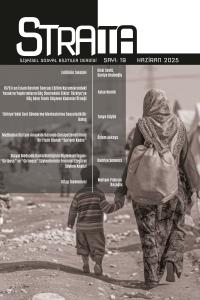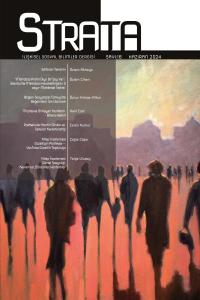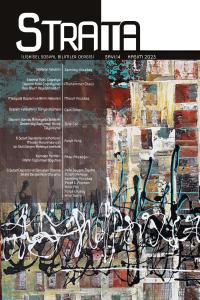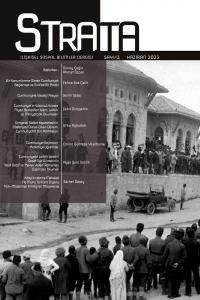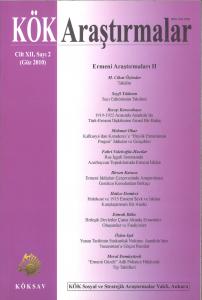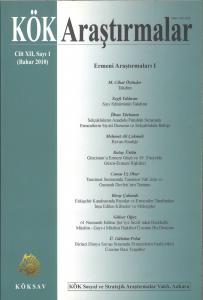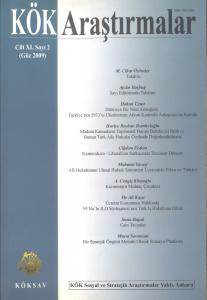
A New Issue of Insight Turkey Has Been Published!
Our special issue entitled Climate Change and Migration seeks to present an alarming and innovative perspective on climate change. At the same time this issue looks at migration from a global and regional level through identifying the dynamics that force people to migrate.
In their commentary, Irudaya Rajan and his colleagues evaluate the role of inter-state migrants in Kerala, India, a zone prone to natural disasters. Meanwhile, Burak Güneş and Haydar Karaman, under the frame of the UN Human Rights Council's actions, look at the Haiti case under the scope of international law and politics on climate refugees. Within the same scope, Abdullah Ayaz's commentary analyzes the impact of externalization policies on migratory movements, highlighting the implementation of border restrictions, repatriation agreements, and other legal procedures.
Taking issue with the difficulties that migrants and refugees face today, Sibel Yanık Aslan questions whether the nexus between securitization and migration hampers the formation of coherent and efficient refugee policies. Concomitant with state violence and the subsequent ethical concerns, Rabia Aamir's article presents and problematizes the right to return to Palestine and the ongoing marginalization and discrimination taking place. Binding these different aspects together, Alexander Ugwukah's timely commentary examines the socio-economic ramification of illegal migration to and from Libya.
Turning the gaze to Turkey, Mehmet Emin Binpınar and Çiğdem Tuğaç in their article, discuss the link between climate change and migration, as well as the potential repercussions in the context of climate security throughout the world and Turkey. Analyzing the perceptions of migrants in Turkey, Yusuf Alpaydın, delves into the cultural and scholastic experiences of Meskhetian Turkic high school students in Turkey. Furthermore, Ching-An Chang's article analyzes the composition of Syrian refugees in Turkey, presenting it as an occasion for developing better refugee policies. Following the Syrian civil war consequences, Ömer Yılmaz in his on-topic commentary examines the functions of the Turkish safe zones within the Syrian border.
This issue of Insight Turkey, thanks to the precious pieces of Zafer Meşe, Hatice Karahan, Nigar Tuğsuz, Murat Ülgül, and İsmail Köse, presents two off-topic articles and one commentary, covering significant issues such as the future of the EU-Turkey relations, the status of socio-economic rights of headscarved women in Turkey as well as the U.S. policy towards the Black Sea region.
We hope that this issue presents and provides the verity to its readers through an extensive and rich framing covering important events and developments related to climate change and migration.
A New Issue of Insight Turkey Has Been Published!
Our special issue entitled Climate Change and Migration seeks to present an alarming and innovative perspective on climate change. At the same time this issue looks at migration from a global and regional level through identifying the dynamics that force people to migrate.
In their commentary, Irudaya Rajan and his colleagues evaluate the role of inter-state migrants in Kerala, India, a zone prone to natural disasters. Meanwhile, Burak Güneş and Haydar Karaman, under the frame of the UN Human Rights Council's actions, look at the Haiti case under the scope of international law and politics on climate refugees. Within the same scope, Abdullah Ayaz's commentary analyzes the impact of externalization policies on migratory movements, highlighting the implementation of border restrictions, repatriation agreements, and other legal procedures.
Taking issue with the difficulties that migrants and refugees face today, Sibel Yanık Aslan questions whether the nexus between securitization and migration hampers the formation of coherent and efficient refugee policies. Concomitant with state violence and the subsequent ethical concerns, Rabia Aamir's article presents and problematizes the right to return to Palestine and the ongoing marginalization and discrimination taking place. Binding these different aspects together, Alexander Ugwukah's timely commentary examines the socio-economic ramification of illegal migration to and from Libya.
Turning the gaze to Turkey, Mehmet Emin Binpınar and Çiğdem Tuğaç in their article, discuss the link between climate change and migration, as well as the potential repercussions in the context of climate security throughout the world and Turkey. Analyzing the perceptions of migrants in Turkey, Yusuf Alpaydın, delves into the cultural and scholastic experiences of Meskhetian Turkic high school students in Turkey. Furthermore, Ching-An Chang's article analyzes the composition of Syrian refugees in Turkey, presenting it as an occasion for developing better refugee policies. Following the Syrian civil war consequences, Ömer Yılmaz in his on-topic commentary examines the functions of the Turkish safe zones within the Syrian border.
This issue of Insight Turkey, thanks to the precious pieces of Zafer Meşe, Hatice Karahan, Nigar Tuğsuz, Murat Ülgül, and İsmail Köse, presents two off-topic articles and one commentary, covering significant issues such as the future of the EU-Turkey relations, the status of socio-economic rights of headscarved women in Turkey as well as the U.S. policy towards the Black Sea region.
We hope that this issue presents and provides the verity to its readers through an extensive and rich framing covering important events and developments related to climate change and migration.











